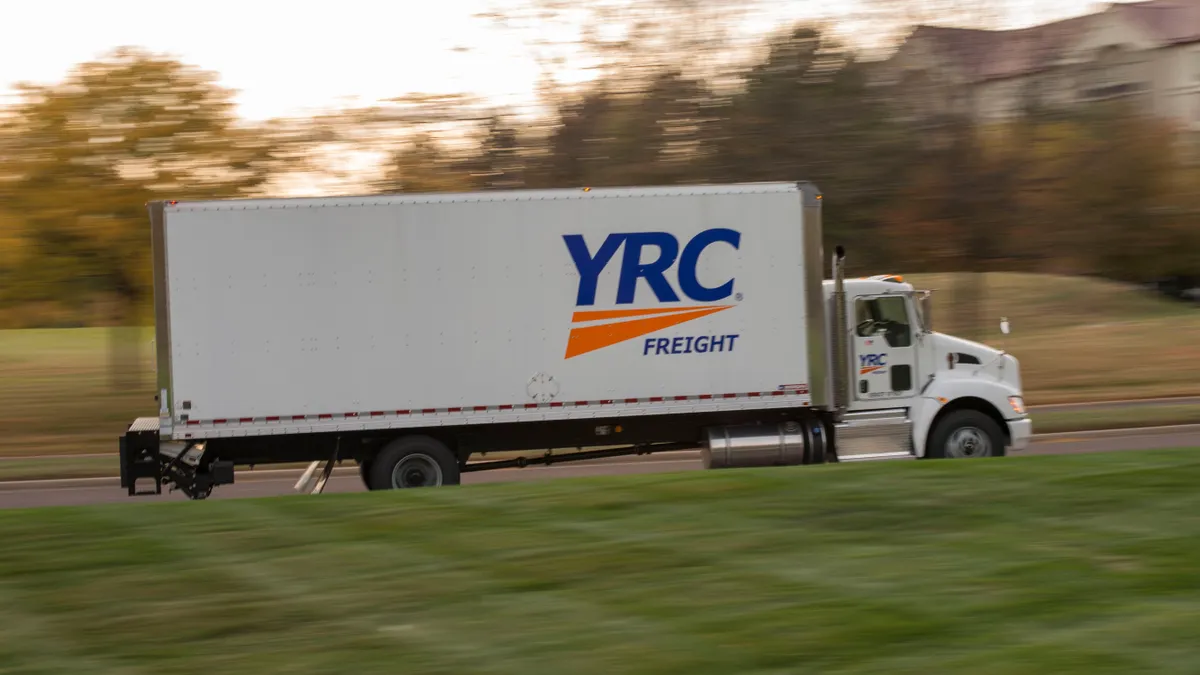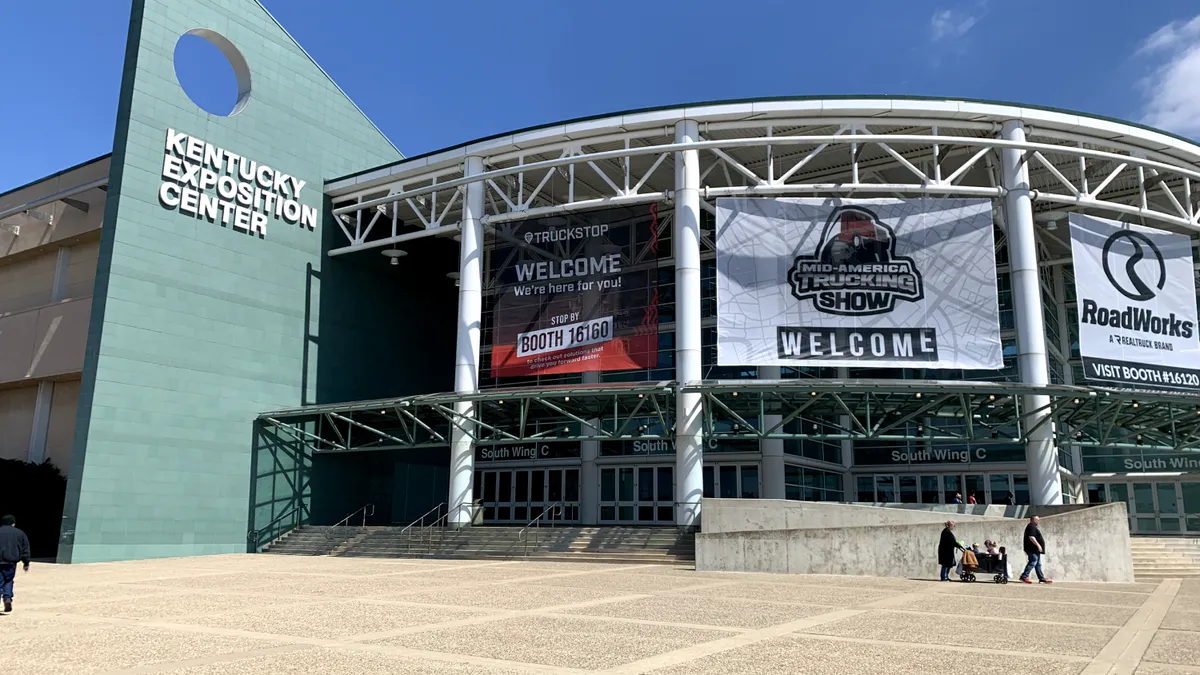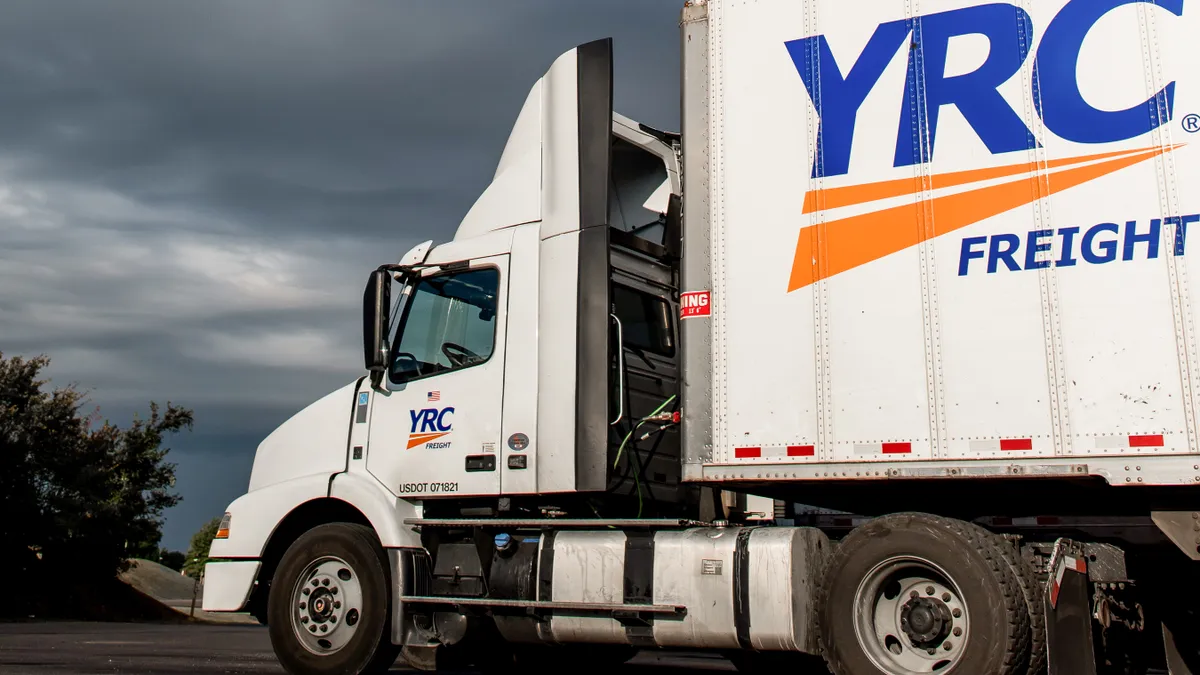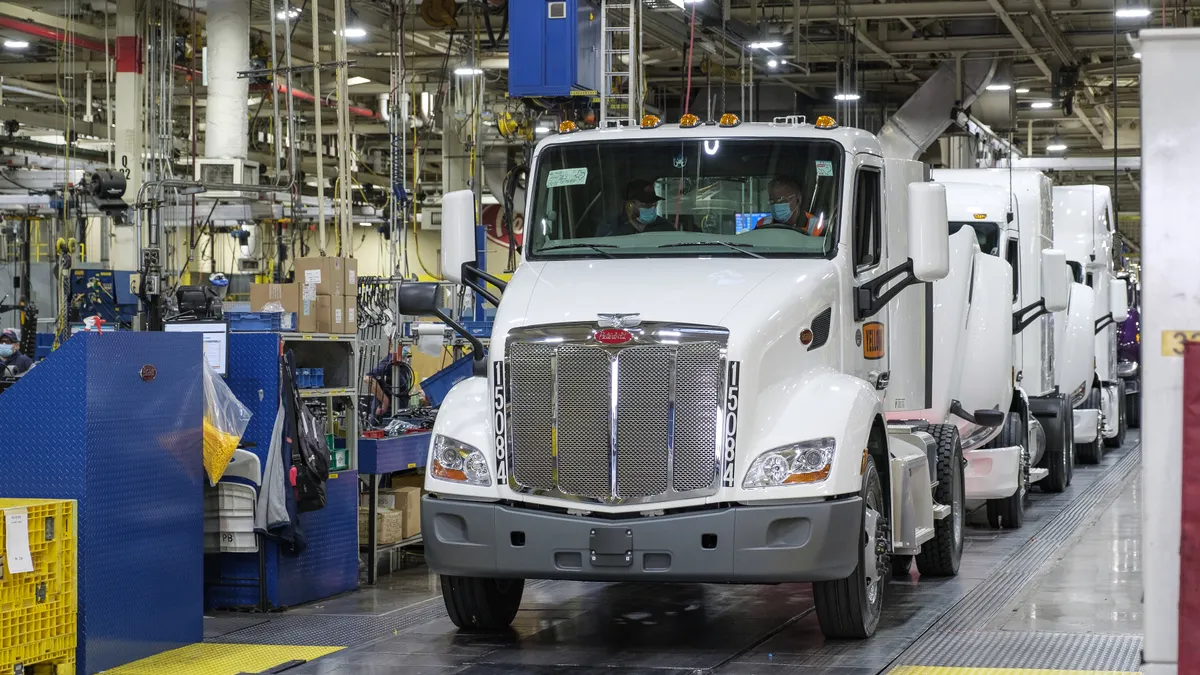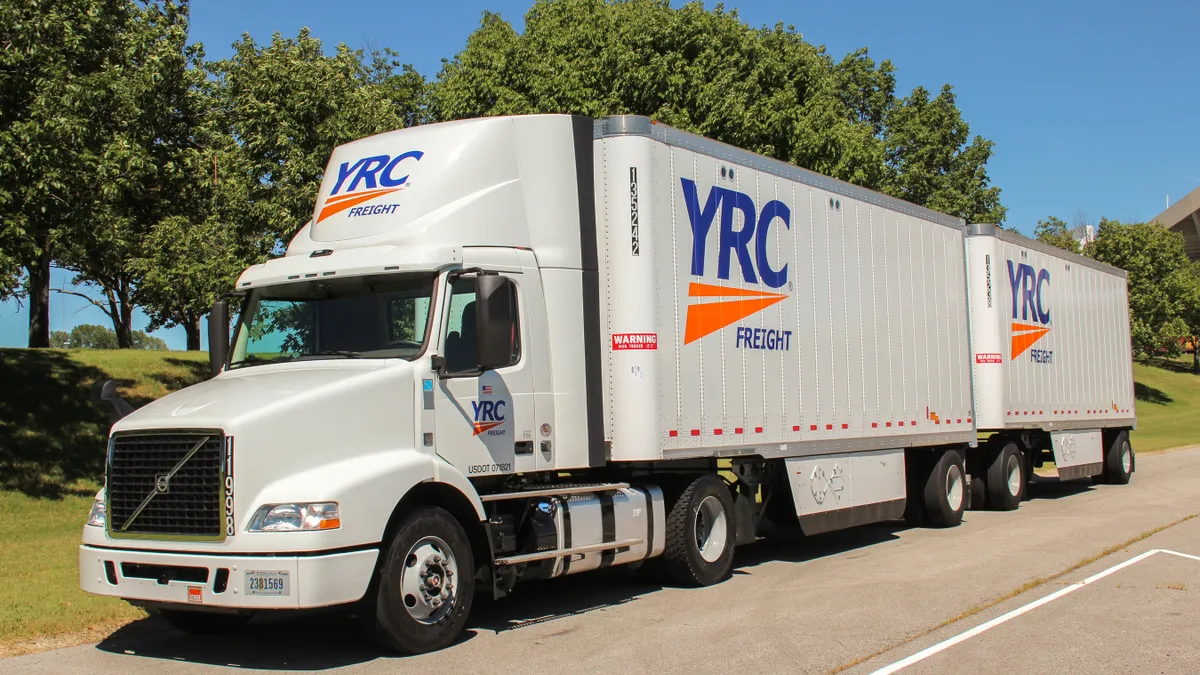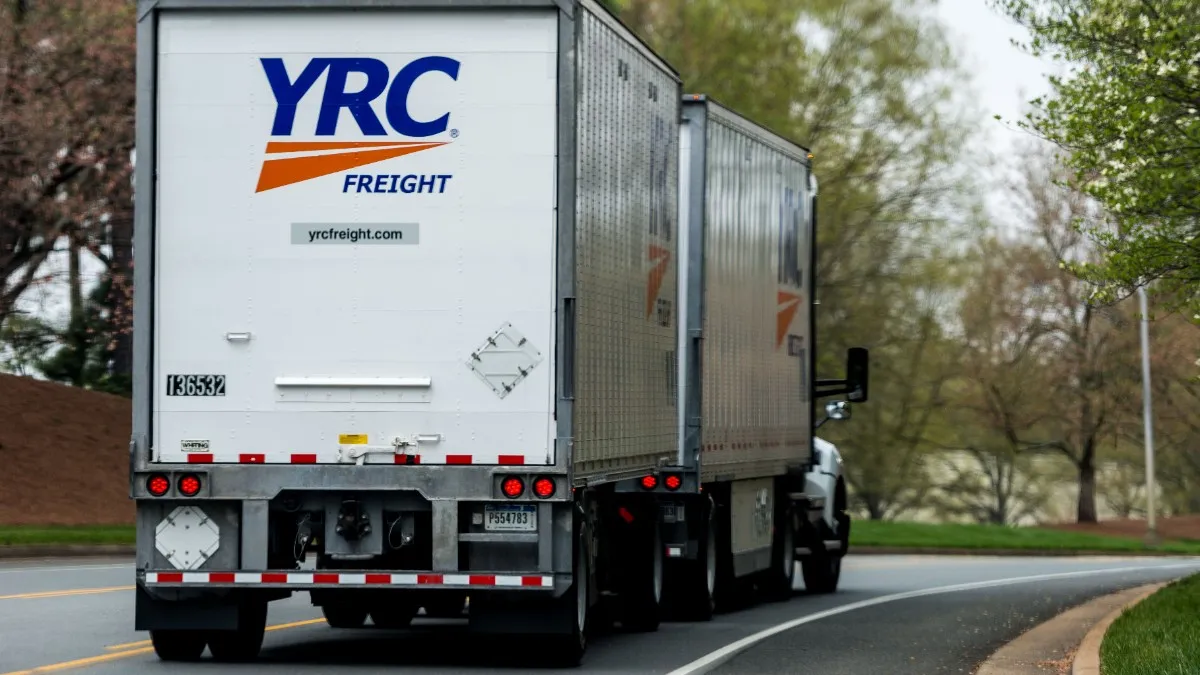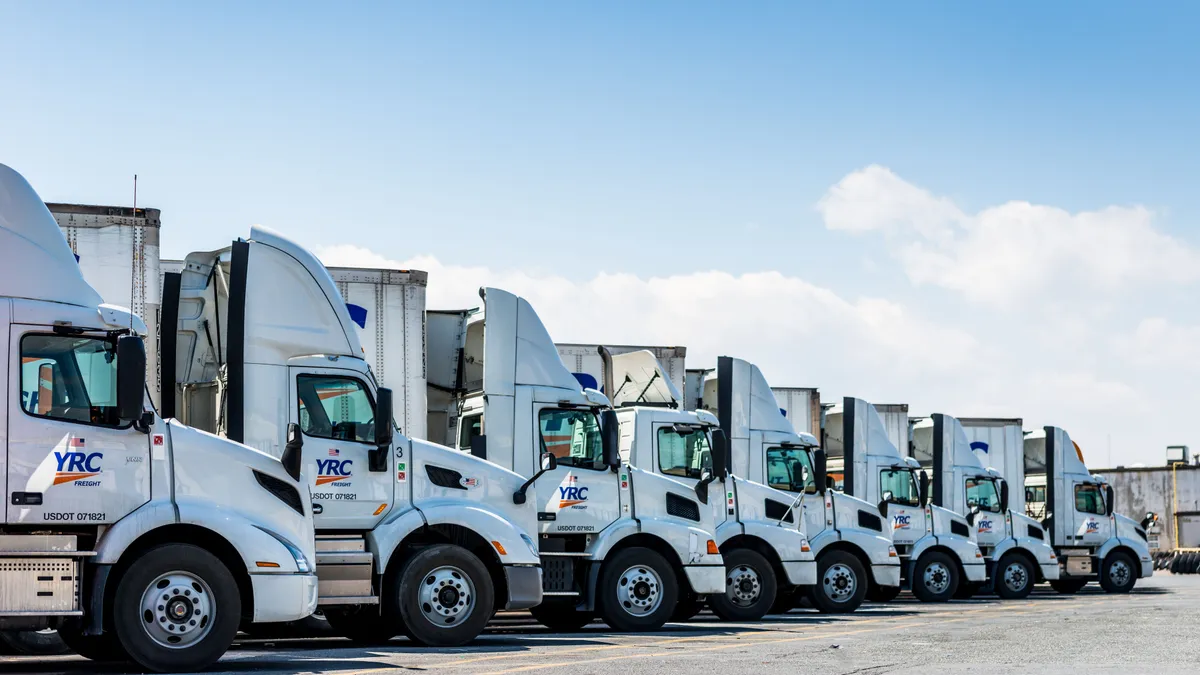Dive Brief:
- David Ross, Stifel Financial research managing director, has suspended his estimate and ratings for YRC Worldwide, following a Monday earnings call in which the LTL carrier declined to take questions from analysts. YRC announced it would likely not make lenders' EBITDA guidelines in Q1 2021.
- Ross wrote in a memo that YRC earnings were a familiar beverage. "Take a sip of that YRC drink — yup, needs more tonnage, maybe some yield, too — definitely lots of labor involved ... Due to uncertainty around the current liquidity situation and no ability to predict the outcome of YRC's requests for external relief, we are suspending our rating on the shares."
- YRC posted a net profit of $4.3 million for Q1, but only after it made property sales of $39.3 million. YRC has $833 million in long-term debt and approached lenders to waive its minimum adjusted EBITDA covenant for every quarter in 2020. YRC is also having trouble meeting obligations to unions. Ross noted YRC has not paid Central States, the largest of its pension plans to which it contributes, since February. That would mean $100 million in missed payments if it defers May's obligation.
Dive Insight:
Losing Stifel's faith sends a signal to the trucking sector of the gravity of YRC's situation. But Ross did not write YRC off yet. He said the federal government could save the day if it extends coronavirus-related relief to YRC.
"How quickly volume returns, as the economy re-opens this month," could also save YRC, Ross wrote in the memo Tuesday. "If we don't get any good news in the next 30 days, we would not be surprised to see a wind-down of operations on or before July Fourth weekend."
YRC's troubles are not new to analysts, and Ross is not the first analyst to conjecture YRC could fold. YRC reported a $104 million net loss in 2019 on annual revenues of $4.87 billion. YRC told investors in its 10-K it was in a "highly competitive industry, and our business will suffer if we are unable to adapt to competitive pressures." The company also said its pension expense could "increase significantly and have a material adverse effect on our business, financial condition and results of operations."
Other analysts have expressed doubts about YRC's long-term viability, too. Dean Maciuba, director of consulting services at Logistics Trends & Insights LLC, wrote in February, "continued financial losses probably mean more market share losses for YRC and further demonstrates that you can't shrink your way to profitability in the transportation business segment."
Maciuba said he expected FedEx Freight and XPO, two large LTL competitors, to gain from YRC's woes. He noted XPO was shifting to spin off parts and focus on LTL before COVID-19 struck, ready for a "business bonanza" if YRC folded.
"It makes sense that FedEx Freight and XPO are the two most likely LTL candidates to benefit from YRC going belly up," Maciuba wrote in February. "[If] XPO’s sole focus will be LTL, they will want to prepare themselves to further grow their LTL business, drive improved scale or efficiency, and ultimately higher profit, by gobbling up many of YRC's customers."
XPO reversed its decision to spin off parts and focus on LTL, filing paperwork with the SEC on March 20 that indicated the coronavirus crisis may have dissuaded the carrier from doing what Maciuba suggested. But XPO CEO Bradley Jacobs told Transport Topics on Tuesday the company had $2 billion in cash and $500 million in credit, and had an eye out for new business.
"I don’t rule out doing [mergers and acquisitions]," Jacobs told Transport Topics. "We’re good at M&A. We've got great success at buying 17 of the best companies that were in the industry and then highly integrating them."
XPO spokesman Joseph Checkler said Jacobs has no time frame in mind for new acquisitions. As for why Jacobs seemingly changed course on M&A again, Checkler told Transport Dive that Jacobs was answering a question posed to him on Tuesday.


